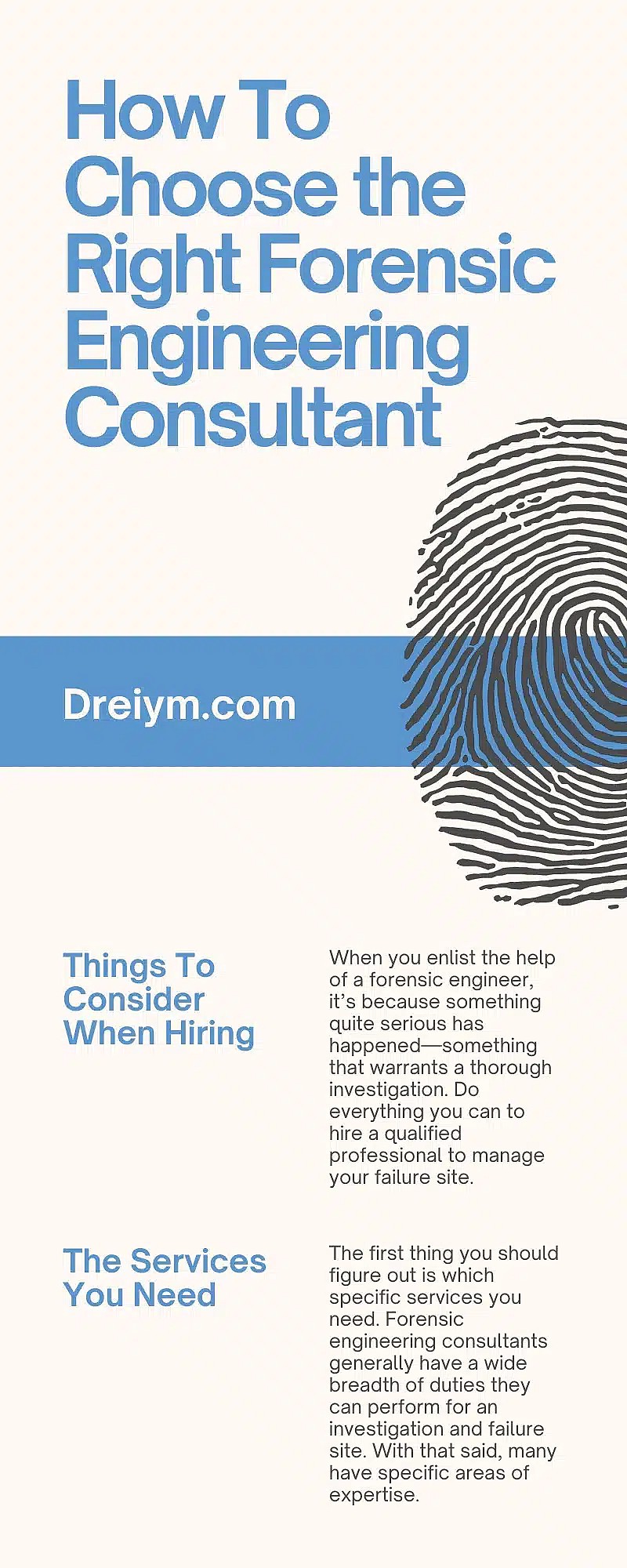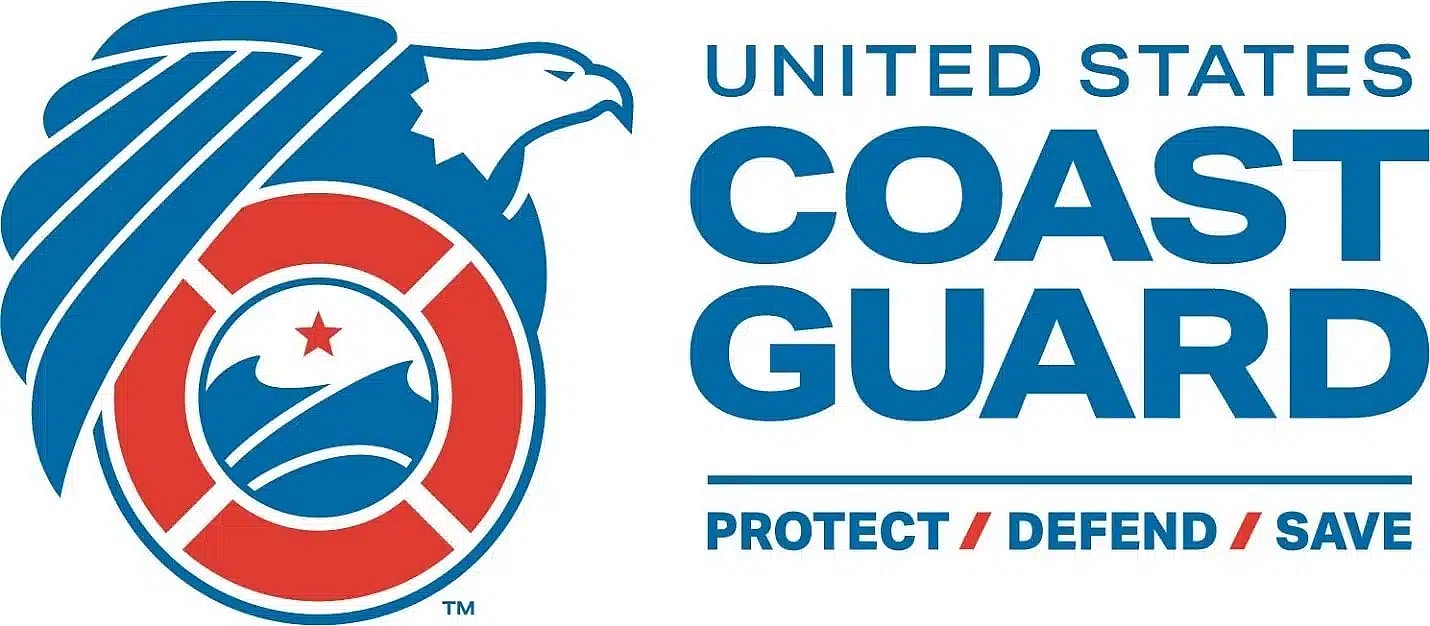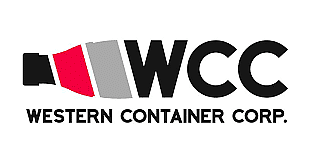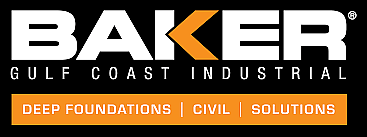How To Choose the Right Forensic Engineering Consultant
No matter how prepared you think your facility is, structure, machine, and component failures sometimes happen. When they do, it’s crucial to have a qualified consultant perform a thorough and productive investigation. But how do you choose the right forensic engineering consultant for your unique situation? Uncover the answer to that question in this comprehensive guide.
What Is a Forensic Engineering Consultant?
If you plan on enlisting the services of a forensic engineering consultant, you must first understand who these people are and what they do. Forensic engineering consultants are professionals who use engineering applications and principles to investigate failures in various situations. You could find a forensic engineering consultant signing on to examine any of the following situations.
- Failure of machinery
- Failure of a component
- Failure of a structure
- Failure of a material
What Do They Do?
Let’s take a closer look at the actual workload of a forensic engineer. Doing so will ensure that you understand how important it is to select a high-quality engineering consultant for your investigation. The primary duties of a forensic engineering consultant are to use engineering principles and applications to investigate failures of machinery, structures, and materials (among other things). However, their role often extends beyond this. These people are experts in their field and conduct thorough examinations of a site to deduce the root cause of a failure. As a result, their work may include a variety of essential tasks.
- Observation of a structural failure site
- Utilizing engineering and scientific knowledge to determine causes of failure
- Gathering evidence at the site of a failure
- Writing reports documenting a failure and investigation process
- Testifying in legal matters involving the investigated failure
- Providing detailed risk analysis at construction sites
These engineers may also oversee the replacement or repair of damaged structures that resulted from a failure. They also must familiarize themselves with the properties of various materials used in infrastructure and construction builds.
Things To Consider When Hiring
Now that we understand who forensic engineering consultants are and what they do, it’s time to discuss the process of hiring one. It’s important to note that these aren’t the people you call when a machine needs a bit of maintenance or when there’s a minor dispute among staff. When you enlist the help of a forensic engineer, it’s because something quite serious has happened—something that warrants a thorough investigation. Do everything you can to hire a qualified professional to manage your failure site. There are a few things you need to consider during the vetting process that will help you make an informed decision. We’ve taken some time to describe each of these things below.
The Services You Need
The first thing you should figure out is which specific services you need. Forensic engineering consultants generally have a wide breadth of duties they can perform for an investigation and failure site. With that said, many have specific areas of expertise. Additionally, there may be candidates with more certifications in an area of focus than others. For this reason, understanding what you need from your consultant can help you make the right decision about who to hire when the time comes. If so, seek out consultants who have expertise in those areas. You may need an individual with more knowledge of structural or energized equipment failures. In this case, you’d start your search by seeking candidates whose qualifications align with your needs.
The Company They Work For
After you select a handful of potential candidates, it’s helpful to research the forensic engineering company or organization they work for. Understanding who you’re doing business with is imperative to success. There are various things to consider when vetting the companies your candidates work for.
#1. Reputation
Researching the reputation of the companies your potential candidates work for is an important part of the hiring process. After all, the consultant you select will be responsible for gathering evidence and deducing the root cause of a significant engineering failure. Determining if they work for a reputable company can tell you a lot about the quality of work you can expect from them. There are various ways to get more insight into a company’s reputation.
- Visiting their website (read up on history, contact them for info)
- Visiting official boards that track the success and aptitude of these companies
- Look for client testimonials and reviews online and elsewhere
Once you understand the reputation of each company, you can start narrowing down your consultant candidates according to how well their expertise aligns with your investigation’s needs.
#2. Expertise
Next, you’ll want to consider your potential candidates’ expertise. More specifically, how do their specialty areas match what you need to carry out your investigation? Asking yourself a few of the following questions can help you surmise which candidate might be the best fit for the job.
- What special certifications do they have?
- How well do their credentials align with investigation needs?
- What skills in their resume/CV make them a good fit?
- What about them personally make them a good fit?
Once you have the answers to these questions, your list of candidates should be pretty narrow. At this point, choosing the best forensic engineering consultant will come down to the tiny details.
Certifications and Credentials
You should have a pretty good idea of what qualifies your candidate to conduct a thorough investigation at your failure site. But it’s always wise to double-check that they have all the standard certifications and credentials necessary to do the work. Any reputable consultant should be more than happy to share information about legitimizing their certifications for you. The best practice is to ask. Of course, if you feel that is insufficient, you can always triple-check with the proper certification boards and record keepers. This extra effort ensures you hire a credentialed consultant who can perform the best investigation possible and get to the root of your failure. Moreover, it ensures that the consultant you hire can help you avoid failures in the future by providing the necessary resources and solutions.













































